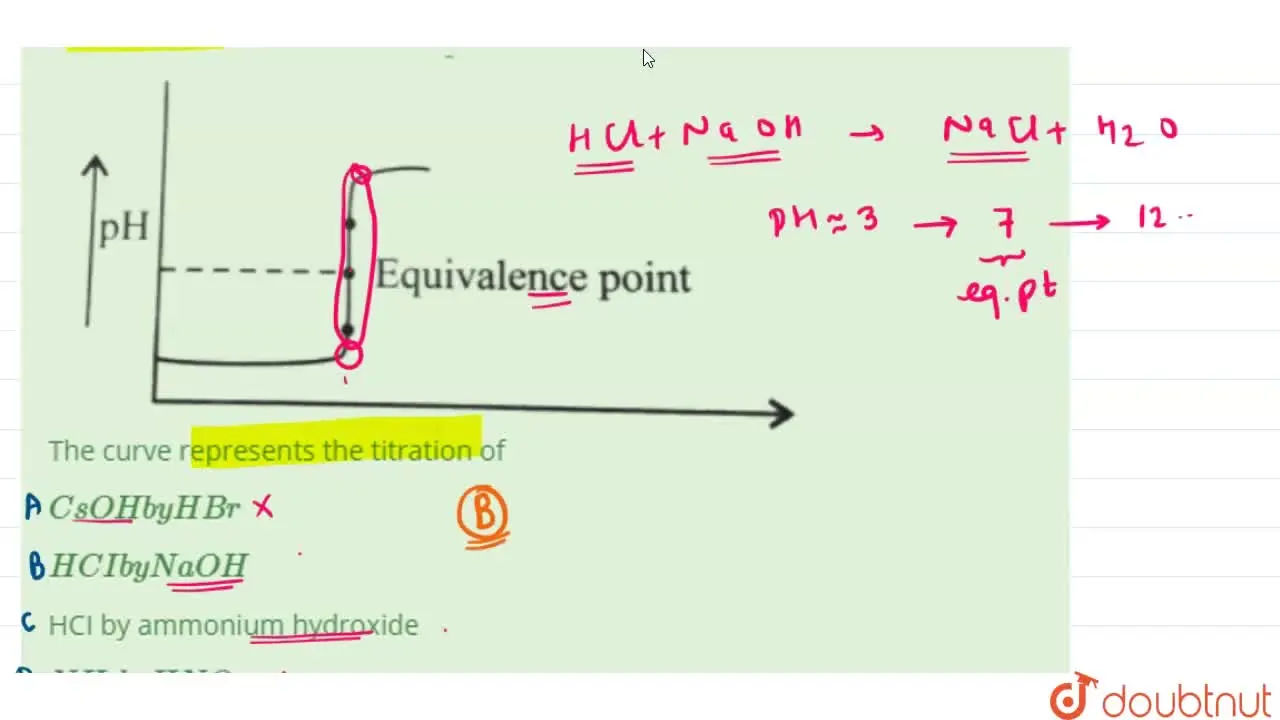In acid-base titration react rapidly to neutralise each other. Equivalence point is a point at which the acid and the base (or oxidising agent and reducing agent) have beem added in equivalent quantities. The end point in the point at which the titration stops. since the purpose of the indicator is to stop the titration close to the point at which the acid and base were added in equivalent quantities, it is important that the equivalent point and the end point be as close as must change colour at a pH close to that of a solution of the salt of the acid base. Singificantly, the pH changes most rapidly near the equivalent point. The exact shape of a titration curve depends on Ka and Kb of acid and base.
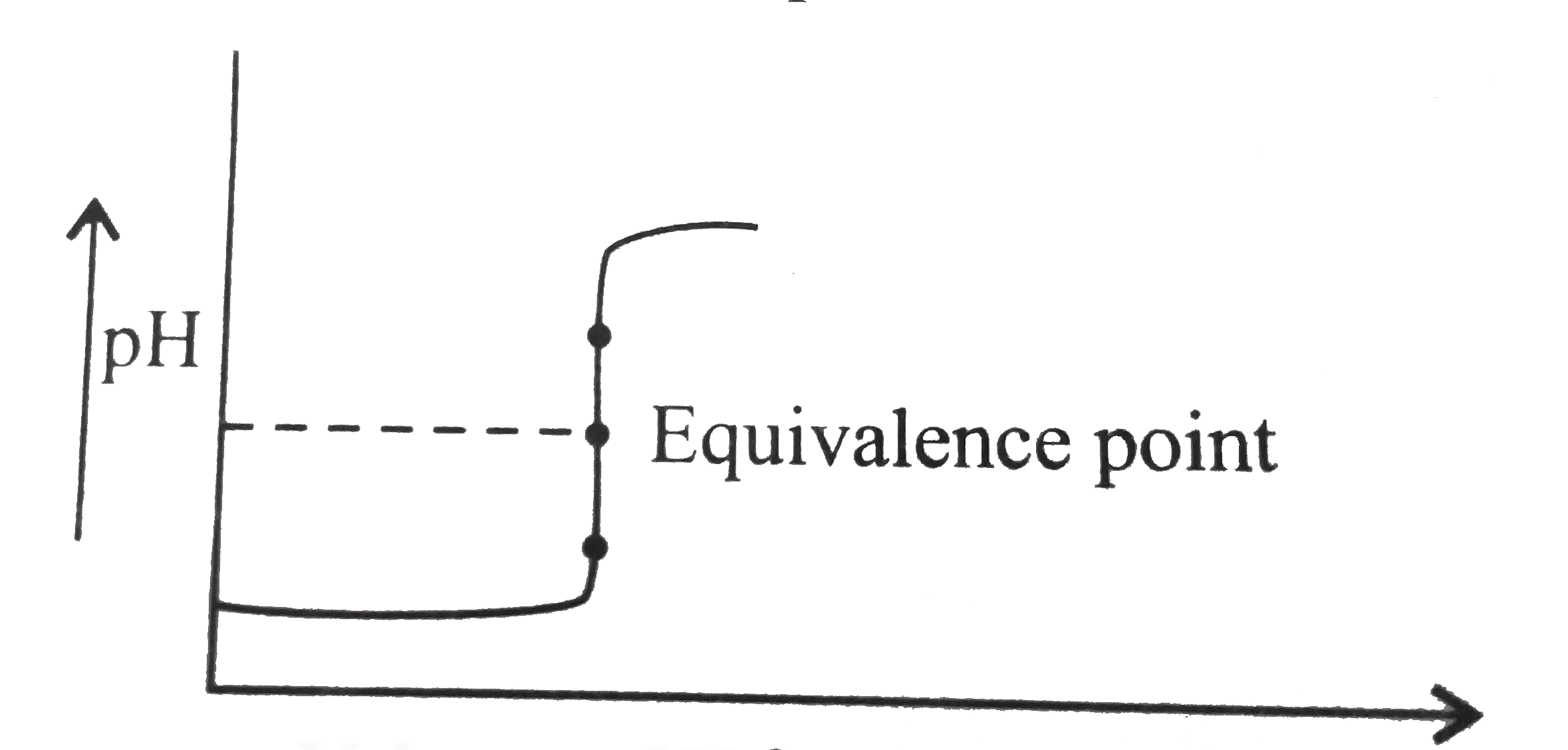
The curve represents the titration of
CsOHbyHBr
HCIbyNaOH
HCI by ammonium hydroxide
NH3byHNO3
The correct Answer is:A
Since the curve starts at higher pH(12.5), so it should be strong base and pH changes most rapidly near the equivalence point, so it should be strong acid. Hence the titration is strong base with strong acid (i.e., CsOH by HBr).
Related Playlists
- BOOK - CENGAGE CHEMISTRY ENGLISHCHAPTER - IONIC EQUILIBRIUMEXERCISE - Exercises Multiple Correct33videos
IONIC EQUILIBRIUM
- BOOK - CENGAGE CHEMISTRY ENGLISHCHAPTER - IONIC EQUILIBRIUMEXERCISE - Exercises Single Correct121videos
IONIC EQUILIBRIUM
- BOOK - CENGAGE CHEMISTRY ENGLISHCHAPTER - IONIC EQUILIBRIUMEXERCISE - Exercises Subjective(Coordination Equilibria)2videos
IONIC EQUILIBRIUM
- BOOK - CENGAGE CHEMISTRY ENGLISHCHAPTER - HYDROGEN, WATER AND HYDROGEN PEROXIDEEXERCISE - Subjective Archive (Subjective)3videos
HYDROGEN, WATER AND HYDROGEN PEROXIDE
- BOOK - CENGAGE CHEMISTRY ENGLISHCHAPTER - ISOMERISMEXERCISE - Assertion-Reasoning Type1videos
ISOMERISM
Similar Questions
In acid-base titration react rapidly to neutralise each other. Equivalence point is a point at which the acid and the base (or oxidising agent and reducing agent) have beem added in equivalent quantities. The end point in the point at which the titration stops. since the purpose of the indicator is to stop the titration close to the point at which the acid and base were added in equivalent quantities, it is important that the equivalent point and the end point be as close as must change colour at a pH close to that of a solution of the salt of the acid base. Singificantly, the pH changes most rapidly near the equivalent point. The exact shape of a titration curve depends on Ka and Kb of acid and base.
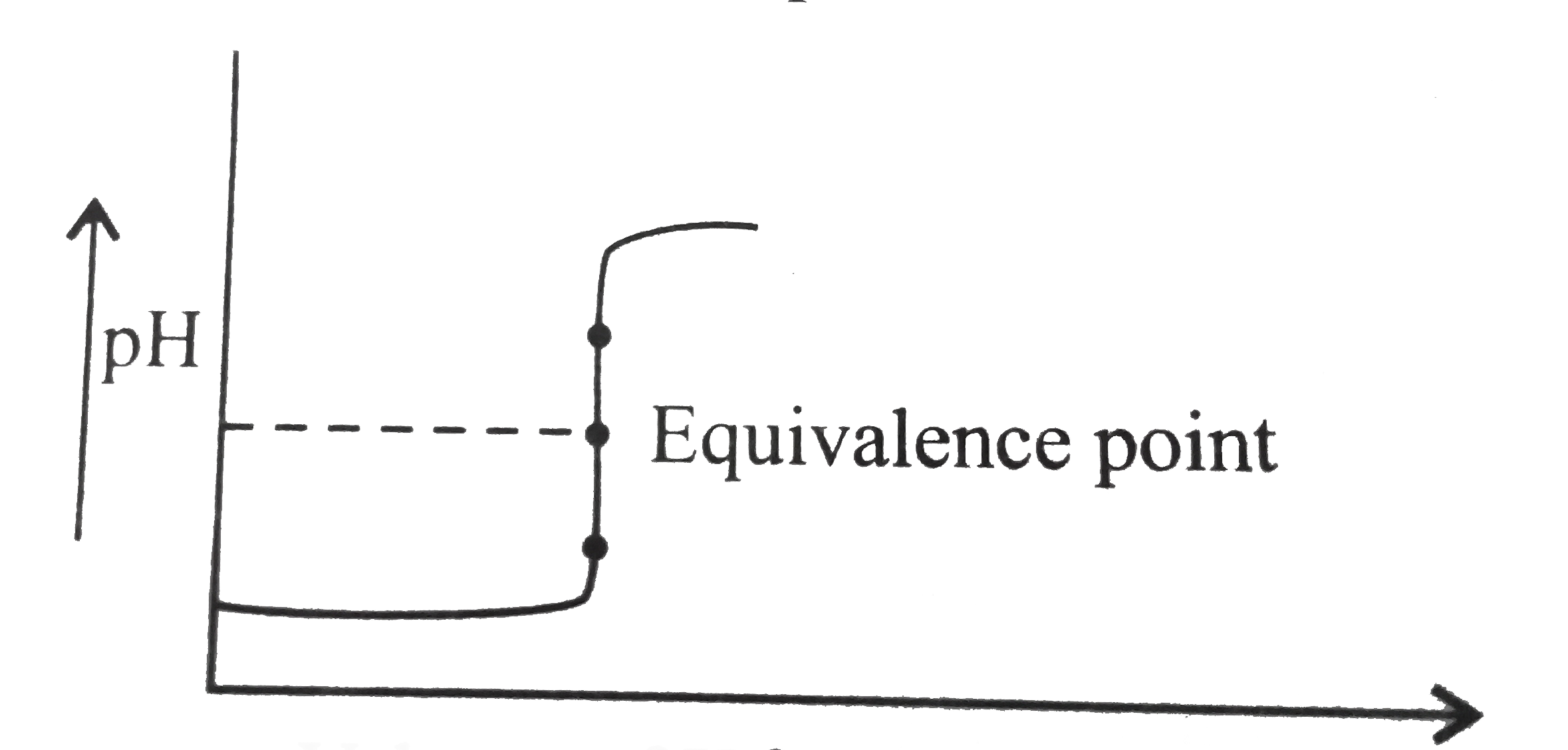
The following curve represents titration curve of HCI against KOH. The pH at equivalent point is
Examine the titration curve below and answer the question.
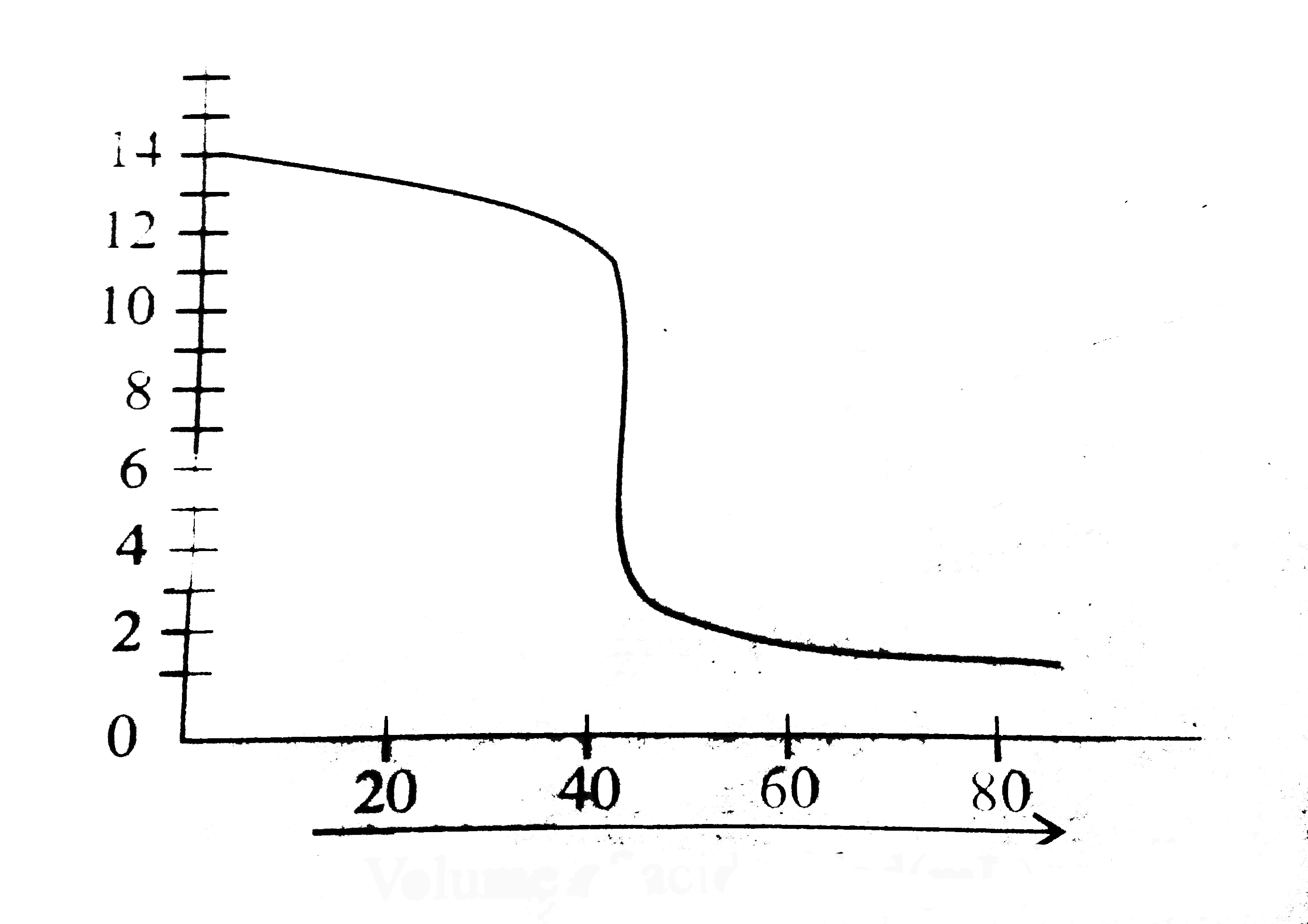 View Solution
View SolutionIn acid-base titration react rapidly to neutralise each other. Equivalence point is a point at which the acid and the base (or oxidising agent and reducing agent) have beem added in equivalent quantities. The end point in the point at which the titration stops. since the purpose of the indicator is to stop the titration close to the point at which the acid and base were added in equivalent quantities, it is important that the equivalent point and the end point be as close as must change colour at a pH close to that of a solution of the salt of the acid base. Singificantly, the pH changes most rapidly near the equivalent point. The exact shape of a titration curve depends on Ka and Kb of acid and base.
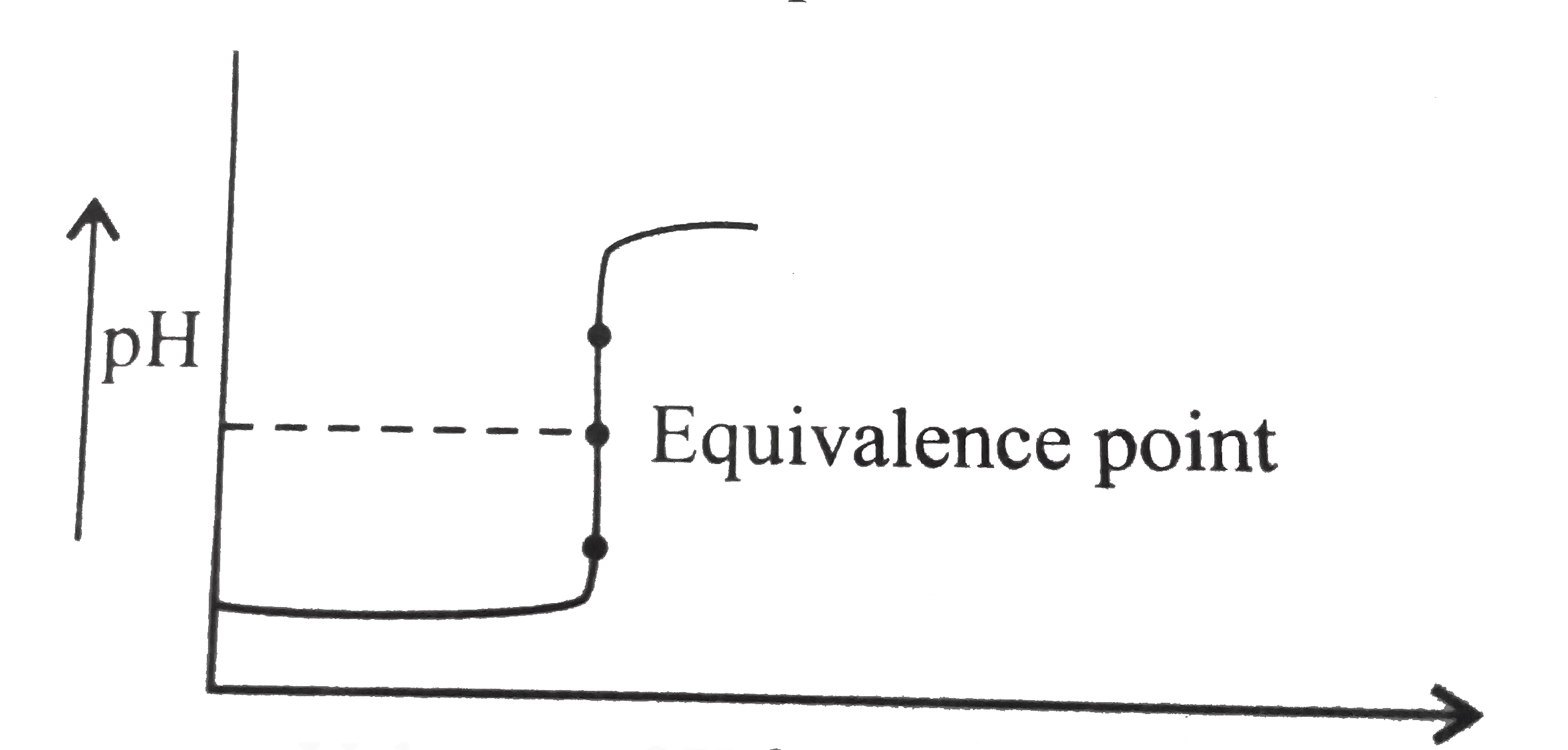
The pH at equivalence point isView SolutionIn acid-base titration react rapidly to neutralise each other. Equivalence point is a point at which the acid and the base (or oxidising agent and reducing agent) have beem added in equivalent quantities. The end point in the point at which the titration stops. since the purpose of the indicator is to stop the titration close to the point at which the acid and base were added in equivalent quantities, it is important that the equivalent point and the end point be as close as must change colour at a pH close to that of a solution of the salt of the acid base. Singificantly, the pH changes most rapidly near the equivalent point. The exact shape of a titration curve depends on Ka and Kb of acid and base.
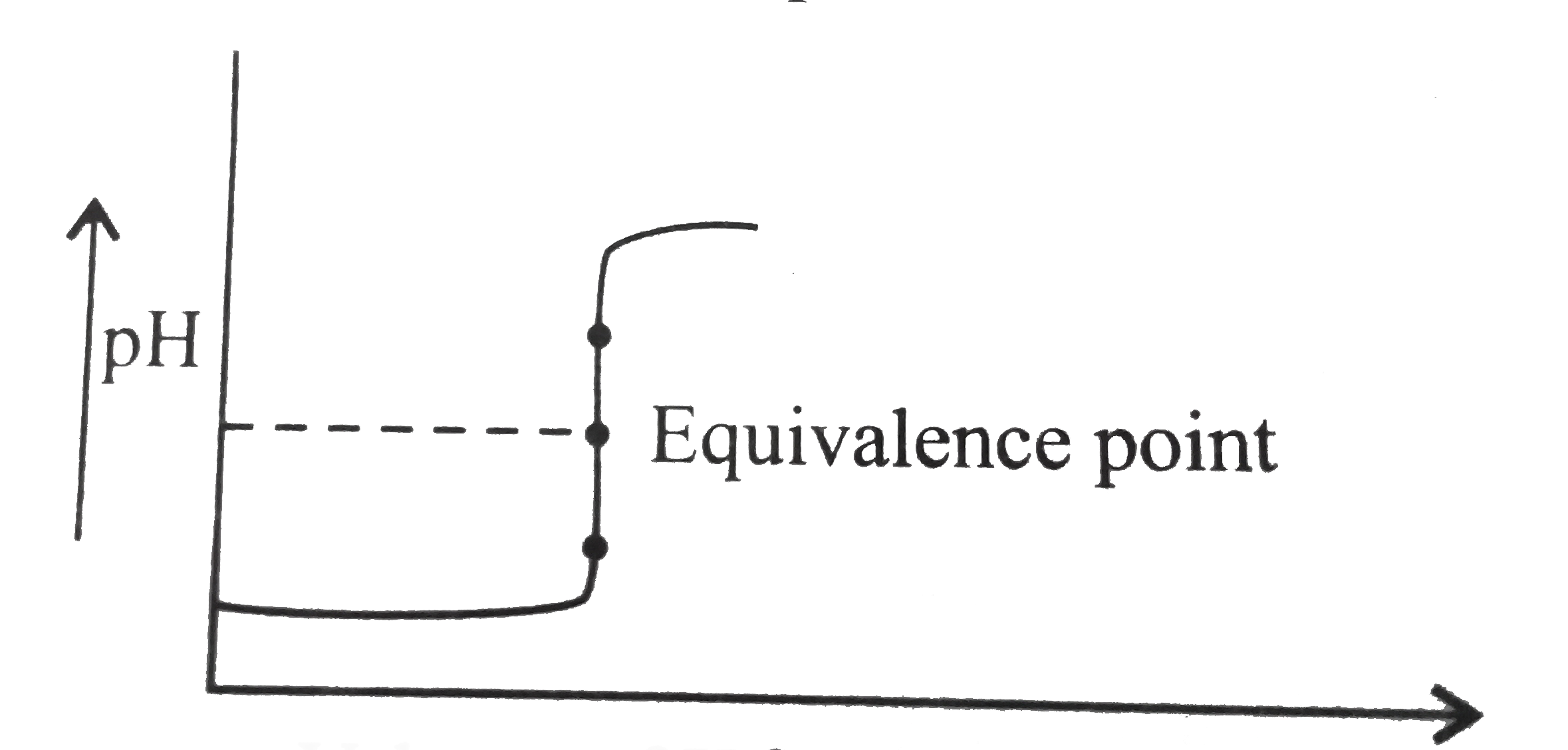
Which of the following curves indicates the titration of a weak diprotic acid by KOH of equivalent strength?View SolutionNitric acid acts as an oxidising agent while nitrous acid can act both as an oxidising as well as reducing agent ?
View SolutionNitric acid acts as an oxidising agent while nitrous acid can act both as an oxidising as well as reducing agent ?
View SolutionWhy the pH at the equivalence point of a titration may differ from 7 ?
View SolutionIn which of the following acid-base titration, the pH is greater than 8 at the equivalence point ?
View SolutionThe best indicator for the detection of the end point in the titration of a weak acid and a strong base is
View SolutionWhich indicator is most commonly used for the titration of a strong acid against a strong base?
View SolutionAn acid-base titration consists of the controlled addition of a dissolved base to a dissolved acid (or the reverse). Acid and base react rapidly to neutralize each other. At the equivalence point, equivalents of reacting substances are equal. The pH during a titration changes every time with a drop of titrant added, but the rate of this change varies enormously. A titration curve, graph of pH as a function of the volume of titrant, displays in detail how the pH changes over the course of an acid base titration. Significantly. the pH changes most rapidly near the equivalence point. The exact shape of a titration curve depends on the KaandKb of acid and base
The pH at equivalence point is:View Solution

